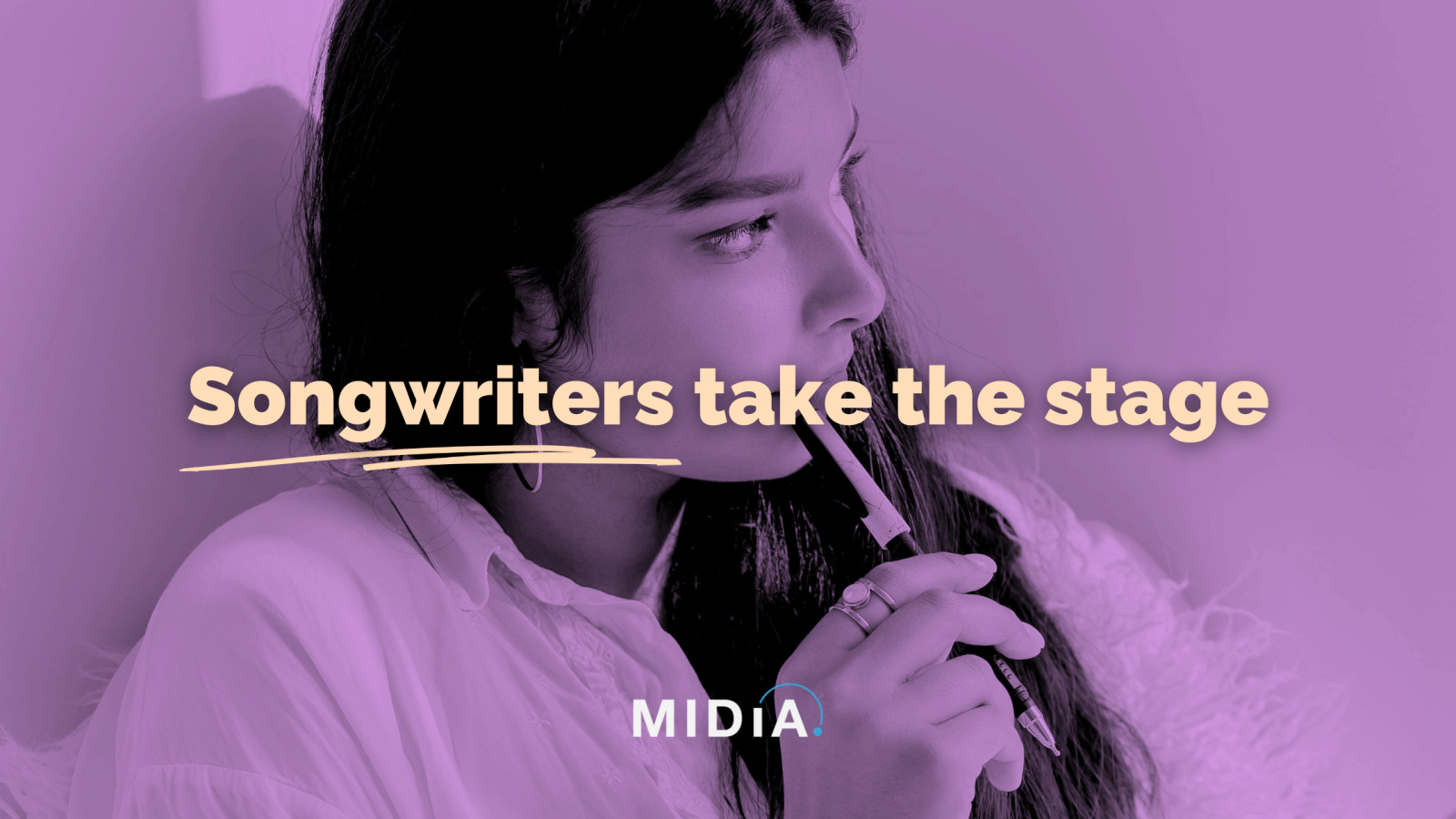Songwriters take the stage: a new playbook for a new era


In the 2021 report, “Rebalancing the song economy”, MIDiA introduced the idea of songs as mini industries. In the streaming era, songs are constantly revived and reimagined — and so long as you own the publishing, it does not matter if the version that becomes popular is the original, a cover, or an interpolation.
Three years on, culture continues to elevate lyrics and compositions. Fan-made remixes and other song versions are increasingly popular on social media, and investment continues to pour into catalogue acquisition. The music industry is now fully a song economy, but not quite a songwriter economy. Songwriters face many of the same challenges as recording artists — lack of meaningful streaming income chief among them — but while artists have turned to monetising fandom via live and merchandise, songwriters have had fewer options for diversifying their businesses. For songwriters, the growing cultural weight of the composition is not yet translating into financial weight.
MIDiA’s landmark new report, “Songwriters take the stage | A new playbook for a new era”, analyses these shifts, laying out the current state and future of the songwriting business. It reveals the results of our first-ever global songwriter survey, where we asked songwriters about how they earn revenue, what they aim to achieve, what is holding them back, and what would help them win. We also conducted interviews with over a dozen songwriters and publishing industry executives to better understand the perspectives of stakeholders across the value chain.
Several key themes emerged from our research:
Livable income is concentrated in the top 10% of songwriters. The vast majority of songwriters in our sample earn under $10,000 from songwriting annually
Featured Report
The audio creator opportunity Audio creator behaviours and monetisation potential
Historically, YouTubers and TikTok influencers have received the lion’s share of mainstream attention as a creator class – but audio creators are increasingly active on the same digital platforms and operating within the same formats. As a result, the audio creator has become a jack of all trades, moving between copyediting, audio editing, and ...
Find out more…Lack of meaningful streaming income is a universal challenge. While other challenges — such as breaking through the noise — eased with time, lack of meaningful streaming income is the universal top challenge for songwriters across tenure, career stage, and income levels
Songwriters succeed by diversifying their businesses. What separates aspirants from full-time songwriters is that the latter have more “front-end” revenue streams — like in-studio fees and works for hire — in addition to back-end royalties
Songwriter ‘brands’ are on the rise. The majority of songwriters are using social media to grow brands around their songwriting, to build both a stronger network within the industry and a monetisable fanbase beyond it
These shifts are pushing partners to evolve, including publishers. Publishers perform all sorts of functions for songwriters beyond royalty collection, like song plugging, providing connections, and finding new licensing opportunities. But songwriters in our survey overwhelmingly chose to sign publishing and co-publishing deals for reassurance that their royalties will be collected — all other benefits are far less likely to be driving forces in their decisions to sign. The case for publishers to better communicate their added value to songwriters is clear, especially as songwriters seek to diversify their revenue beyond royalties. In the late 2010s, artists were saying the same about labels — and while labels are still thriving, they now face stiff competition from a multitude of alternatives.
Clients can now access the full, 40-plus page report here, which delves deeper into these insights and provides recommendations for publishers, collection agencies, streaming services, and other partners. We have also created a free, downloadable sample and video discussion, available on the report landing page.
If you are not a client but would like to learn about how you can access this report, please reach out to enquiries@midiaresearch.com.

The discussion around this post has not yet got started, be the first to add an opinion.